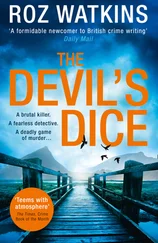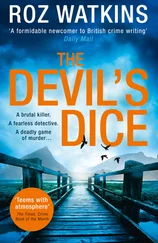“Yes. You can’t go in alone. It’s too dangerous.”
“You’re one of those guys.”
“What guys?”
“What are they called? Commandos? Special Ops? What are they…oh, right, Delta Force.”
Brock concentrated on the video game, not looking at her. Immediately, she knew she’d struck a nerve. Delta Force flew under the radar screen and liked to keep it that way.
“I’m just a soldier on a mission.”
Bullshit, she thought. This guy runs around with no uniform, no name tag. Marines are flying him in choppers, then he commands a huge cargo plane with all those other commando-looking guys. Yeah, right, he’s just your average soldier. “And I’m a ground-pounding firefighter.”
Brock ignored her comment and concentrated on setting up the game.
She asked, “Is this a commercial game?”
“Not quite. This is mine.”
“You wrote it?”
“Yes. Military is doing a lot of their own now. It started with the release of America’s Army in 2002. That was mostly an interactive army-recruitment ad downloaded by millions of gamers. Since then, they’ve gotten even more sophisticated.”
For once he showed some emotion, some enthusiasm. The guy was human after all.
“This makes better soldiers?”
“Absolutely. Proficiency with the games increases reflex speed to situations, and eliminates thought pauses. Reaction time is everything. The percentage of targets hit has been increasing dramatically per round fired.”
“How did you get involved in this? Were you a big game player growing up?”
“Isn’t every kid? I was involved for a while in the Army Government Applications office in Cary, North Carolina, with a team of video-game creators and simulation specialists. I worked with guys from Red Storm Entertainment, Interactive Magic, and Timeline. Then I joined another group. This video game isn’t for public preview.”
“And that’s what this is?”
Brock looked as if he was going to smile, like this whole thing turned him on, and he couldn’t talk about it enough. She liked him much better like this, but it still didn’t mean she trusted the guy.
“Yes. What you’ll be dealing with you won’t find in your local toy store or video store. This is a big inside industry now. We have a lot of support in the field from several D.C. agencies, West Point and the Special Ops center in Florida where most of the simulation and training technologies are located. They’re all heavily involved in the military-video business.”
“They produced this game?”
“It was created by six people. I led the project. You’re going to learn everything you need to know about operating and firing certain weapons under stress. Plus escape and evasion tactics in jungle conditions. We have games to fit just about every condition, but you’ll only need this one. What’s good about this system is I’ll coach and instruct and rerun scenarios until you get them right. It can condition your reflexes in a few hours of this kind of prep. Then some fieldwork and in about the tenth of the time that it used to take, we can have you online and operational.”
He was so convincing that Anna decided to give the training tool a try, not that she was ready to jump into a Malaysian warzone, but the game looked interesting enough.
Anna played war with Brock for six straight hours. She killed hundreds of people. Some of them over and over and over until she got it right. He was a very soft-spoken instructor, nothing like she expected from his demeanor.
The only weapons Anna had ever fired before were a shotgun and a hunting rifle. Her mother, an outfitter in Colorado, was a skeet shooter and a meat hunter. Neither of those weapons was involved.
At one point when Anna was growing tired of all the action, she asked, “Do rookie soldiers really learn how to kill another person by playing these video games?”
“This just helps train reflexes. Gets the brain pathways set. The training’s progressive. You’ll go out and fire live ammo at shifting targets next. Each step will be faster and closer to the real thing.”
She looked at him, trying to get a sense of reality out of him. “You really think you can teach me how to kill someone in a day? Seriously?”
“I can get you close enough that, in a bad situation, you might just react to survive. But it’s not a given. Movies and TV shows aside, it’s very difficult to turn a civilian into someone who can kill at close range.”
“That’s comforting.”
“Actually, it’s true. In fact, studies have shown that soldiers have done all kinds of things to avoid just that. Most ground-combat units in World War I rarely fired their weapons. When they did, they rarely fired to kill. They fired high. Some of them died because they couldn’t make themselves kill. Most killing was done from long range. Mortars, bombs, cannon and machine guns. But we’ve discovered advancements that overcome most of the natural resistance.”
“You consider this an advancement?”
“In combat, yes. Not in civilization. I’m not in the business of advancing civilization. I’m in the business of trying to protect it.”
“By uncivilized means.”
“By any means necessary.”
His apparent honesty was about the only thing she liked about him at the moment. “I’m exhausted,” she told him after a long yawn. “I’ve suddenly developed a loathing for this video game and I really don’t think you’re going to make much of a killer out of me in a hundred days, let alone one. I’d just like to take a nap. There’s no shower on this plane, is there?”
“No. You can shower when we get to Guam.”
“I can’t wait.”
He smiled, finally, a warm, charming smile, and she began to warm up to this strait-laced soldier until he said, “Neither can we.”
Anna dreamed that she was naked and clean, lost between creamy white sheets, ecstatic with their cool embrace, but angry at the mattress for being so uncomfortable.
When she woke a second time she still didn’t open her eyes. Instead, she listened to the steady drone of the plane’s engines, considered getting up, but the thought took too much effort. Weeks of constant grind had taken their toll. It would take a week to recover. Every part of her body ached. She realized she hadn’t moved for hours. Her muscles had locked up and she had to work to get them unwound, get some circulation. She stretched one arm, then the other. She finally opened her eyes when a smell wafted to her that she responded to with enthusiasm.
Her body felt like a piece of lead as she undid her seat belt and pulled herself up. The five men on the plane were up front talking and drinking coffee. Three sitting, two standing.
She got up and went forward.
“Coffee’s fresh,” one of the men said. Brock was talking on a satellite phone.
She accepted the offer of coffee. She smelled of fire and sweat and tried to keep some distance between her smelly self and the men.
After he hung up, Brock brought her a blueberry bagel with cream cheese and another cup of coffee. She was starving again. Then he showed her the island on the computer screen.
They huddled shoulder to shoulder around a laptop and discussed the latest satellite images of the Malaysian and Indonesian fires. The images, acquired by the Moderate-resolution Imaging Spectroradiometer (MODIS) on NASA’s Terra satellite, showed a thick soup of smoke.
The island was virtually invisible, covered by a massive cloud of dense smoke.
“Where are the winds?” she asked no one in particular.
“There’s no wind. It’s dead calm.”
Using a new technology she’d never heard of, the images were run though some kind of color spectrometer, and visual penetration became possible. She could see the heat pattern from the fires.
Читать дальше











